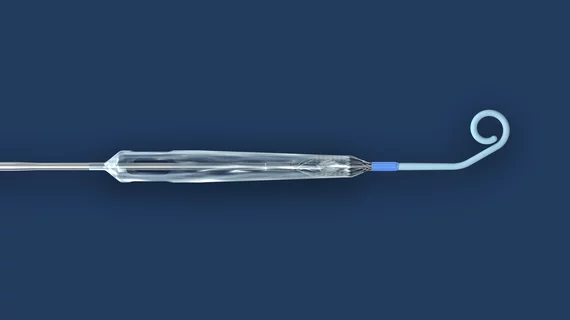Abiomed gains FDA approval to launch first-in-human trial for ‘world’s smallest heart pump’
The FDA has approved Abiomed’s request to launch a first-in-human trial to assess its Impella ECP heart pump. The device, which Abiomed has described as “the world’s smallest heart pump,” will be tested in high-risk percutaneous coronary intervention (PCI) patients.
According to prepared statement detailing the heart pump’s design, it is unsheathed in the patient’s descending aorta and moves across the aortic valve without a wire, pumping from inside the ventricle. It was designed for short-term use in patients undergoing a high-risk PCI procedure.
The approved early feasibility study will assess the heart pump’s safety and feasibility and begin with five patients. The study’s primary endpoint is “successful delivery, initiation and maintenance of adequate hemodynamic support and a composite rate of major device-related adverse events during high-risk PCI.”
“We are excited about the benefits of this new breakthrough technology, which advances the field of heart recovery,” Michael R. Minogue, Abiomed’s chairman, president, and CEO, said in the statement. “Abiomed is making significant investments to develop smaller, smarter, and more connected technology that forms the foundation of the company’s continued leadership in the field of mechanical circulatory support.”
The early feasibility study is expected to begin later this year.

